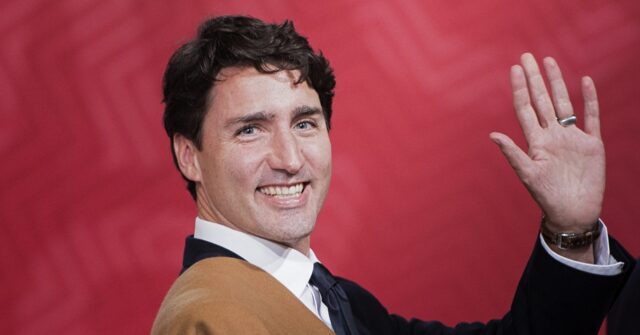On a day marked by notable bipartisan commentary, leaders from Canada’s Conservative Party and the leftist New Democratic Party (NDP) expressed unanimous concern over Prime Minister Justin Trudeau’s handling of a looming trade threat from President-elect Donald Trump. Trump announced a plan to impose a 25 percent tariff on Canadian goods as part of his agenda to address issues surrounding drug trafficking and migration. Conservative leader Pierre Poilievre criticized Trudeau for allowing Canada’s position to deteriorate under what he described as “unprecedented weakness” stemming from longstanding leftist policies. He urged the Prime Minister to formulate a comprehensive strategy to mitigate the impact of potentially crippling tariffs. In a similar vein, Jagmeet Singh, leader of the NDP, chastised Trudeau for failing to vigorously advocate for Canadian workers amidst these threats, suggesting that the Prime Minister was effectively burying his head in the sand.
Trump’s announcement alarmed both Canadian and Mexican officials and was heralded as an aggressive first step in his administration. He stated his intention to levitate tariffs until Canada and Mexico tackle the issues he identifies as contributing to national insecurity, namely the flow of narcotics and migration across the U.S. borders. His use of social media to convey these plans underscored the firm and unyielding approach he is likely to take toward trade relationships, potentially affecting not just economic conditions but the geopolitical landscape as well. In stark contrast to the critical responses from Canadian leaders, Trudeau maintained a rather conciliatory position, indicating that he viewed his relationship with Trump as amicable and expressed optimism about engaging in discussion regarding these challenges.
Poilievre, responding to Trump’s threats, expressed frustration that the Trudeau administration did not appear prepared for such an anticipated challenge. The Conservative leader pointed out that the U.S. stands as Canada’s primary trading partner, responsible for a substantial volume of trade, and failure to act decisively could have dire consequences. He stressed the urgency for a well-crafted plan that prioritizes the economic and security interests of Canada. Elements of his proposed plan included canceling proposed tax increases and revising policies linked to the carbon tax, which he believes would bolster the economy by keeping more money in the hands of Canadians. Additionally, he urged for stronger actions against the illegal drug trade, a factor Trump has flagged as justification for the tariffs.
Contrastingly, Singh condemned Trudeau’s perceived lack of aggression in the face of Trump’s “bullying,” advocating for a more robust stance that embodies strength. Singh’s comments reflected broader frustrations regarding Canada’s perceived vulnerability in international dealings and his belief that a firmer approach is necessary for protecting Canadian jobs and interests. He emphasized the need for Canada to demonstrate readiness to respond assertively to U.S. threats, asserting that a lack of a clear plan would only embolden such aggressive moves from the U.S. government. As both leaders called for stronger responses from Trudeau, it became clear that there is widespread concern about the ramifications of a potential trade war catalyzed by Trump’s tariffs, which could exacerbate existing economic difficulties.
In this atmosphere of rising tensions, Quebec’s Premier, François Legault, also weighed in, pressing Trudeau to exhaust all measures to combat the threat posited by Trump. Legault’s comments added an additional layer of pressure on the Prime Minister, particularly since Trudeau’s Liberal Party had recently suffered a significant loss in Quebec that highlighted vulnerabilities across the region. Legault’s remarks notably portrayed Trump’s concerns regarding borders as legitimate, suggesting an unusual alignment in concerns over migration that transcended the political divide, at least at the provincial level.
As these political tensions unfolded, Trudeau’s light-hearted invocation of a “good” conversation with Trump was received with skepticism by both his political opponents and labor representatives. Critics posited that such an easy dismissal of the serious threats Trump posed to Canada’s economy could have grave consequences. The overall sentiment expressed across the political landscape underscored a critical juncture for Canada as it navigates its economic future in light of a brash new U.S. administration that appears determined to exert pressure on neighboring countries. With key players in Canadian politics calling for immediate action, the outcome of this battle could redefine the nature of trade relations and ultimately impact Canada’s economic stability.
The unfolding situation serves as a testament to the complex dynamics of international relations where economic interests intertwine with national security concerns. Canada, long considered a relatively stable trading partner to the U.S., is now faced with potential tariffs that threaten its economic resilience. As both Conservative and NDP leaders push for a more proactive national strategy, pressures flourish across the spectrum of Canadian politics, heightening the urgency for actions aimed at protecting Canadian jobs and industry. These developments not only reflect the fragility of the current political landscape but also underscore the necessity for united, robust responses against external economic pressures that could have long-lasting effects. With diverse strategies placing differing priorities on aggression versus diplomacy, Trudeau faces the challenge of crafting a response that addresses both immediate threats while fostering a long-term solution for Canadian trade.

